There are some that believe all wars can be avoided, but the history of humanity belies that position. History demonstrates humanity going to war for diverse reasons, including acquisition of territory, of slave labor, over religious differences, and in all too many cases genocide. Self-defense is another reason for warfare, often unavoidably in response to aggression.
Nonetheless, many of history’s armed conflicts may not have happened had cooler heads been allowed to prevail. In several instances, the short-sighted resolution of one conflict laid the groundwork for future wars, especially in the case of imperial ambitions. For example, the Treaty of Versailles following World War I all but ensured another major war would ensue. In some cases, slow communications prevented diplomats and peacemakers from preventing armed conflicts. Here are ten wars which might not have happened, but for one reason or another became part of history.
10. The War of 1812
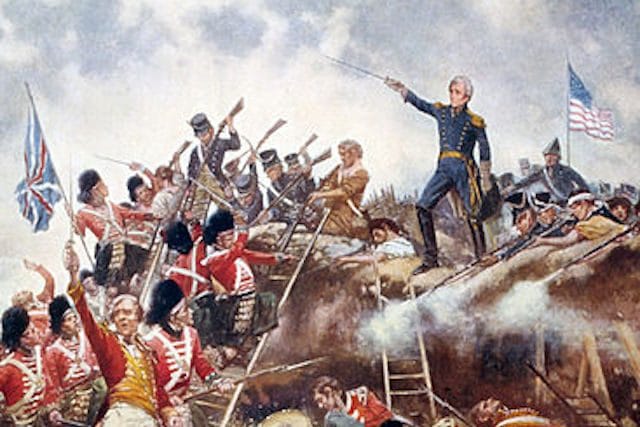
In order to impose economic warfare on Napoleon’s French Empire, and to maintain its fleets at sea, Great Britain took steps to control international trade and disrupt shipping to and from the young United States. From 1793, Great Britain stopped American ships on the high seas and seized sailors they claimed were British citizens. Granted quasi-legality by Britain’s Orders in Council, their actions resulted in over 15,000 American citizens forced into British naval service by 1812. Napoleon responded to the British actions with the Berlin Decrees, which banned European trade with Great Britain.
The Orders in Council also imposed trade restrictions with France, which the United States disputed as outside international law. The United States remained officially neutral in the Napoleonic Wars. By 1811, after several armed confrontations between American and British ships, the two nations stood at the brink of war. Also inflaming war passions in America was the desire by some to seize British Canada. Britain supported the Indian tribes along the American frontier, further enraging the Americans.
In 1812, after long negotiations, the British government rescinded the Orders in Council, answering the majority of America’s diplomatic demands. A ship dispatched to America carrying the news that war had been avoided arrived in New York in July 1812, under a flag of truce. There it learned the United States had declared war in June. Three days after its arrival it departed for Halifax, carrying the former British Ambassador to America as well as a copy of the declaration of war. Had the Orders in Council been repealed just weeks earlier, the War of 1812 could have, and likely would have, been avoided through further negotiations over the remaining issues in dispute.
9. The Vietnam War
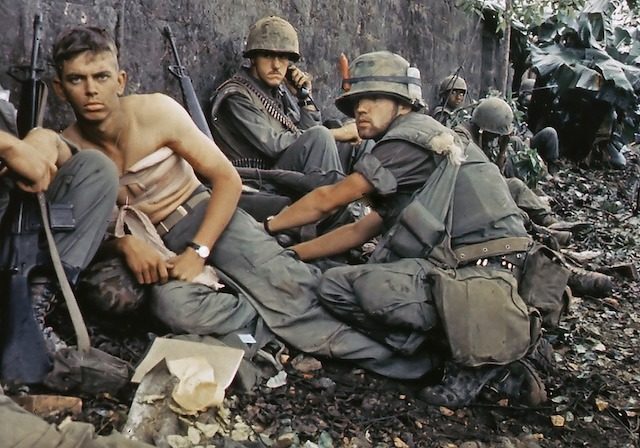
During the Second World War, the Japanese took advantage of the collapse of France in Europe to seize most of its Southeast Asia colonial positions. The Vietnamese were no more welcoming to their Asian masters than they had been to their European rulers. Guerrilla warfare against the Japanese occupation continued to the end of the war. The Viet Minh, with support from the United States, China, and the Soviet Union, fought a long insurgency against the Japanese, with the hope of re-establishing an independent Vietnam. After the war the French returned, intent upon re-establishing their pre-war overseas empire. The Viet Minh remained in opposition to foreign rule.
The United States supported the French, covertly at first. By the early 1950s Vietnam had two governments, one based in Hanoi and supported by the Viet Minh. The other, in Saigon, operated as a puppet government, controlled by the French. The United States and Great Britain supported the latter. Following the Viet Minh defeat of and subsequent withdrawal by the French, the two governments were formally recognized by the great powers, and North and South Vietnam came into existence, separated by a “demilitarized zone”.
The Viet Minh, and later the Viet Cong, under Ho Chi Minh, refused to accept a divided country. Gradually, based on faith in the so-called “domino theory”, the United States poured unimaginable resources into South Vietnam. Had the United States not supported the idea of France restoring its global empire in the 1950s, the long Vietnamese War of the 1960s and 1970s would likely not have been fought. The aftermath? A single Vietnam, governed from Hanoi, under communist rule, after more than 58,000 American deaths, preceded by more the 75,000 French, and more than one million Vietnamese. Today Vietnam is a major trading partner of the United States.
8. The Opium Wars
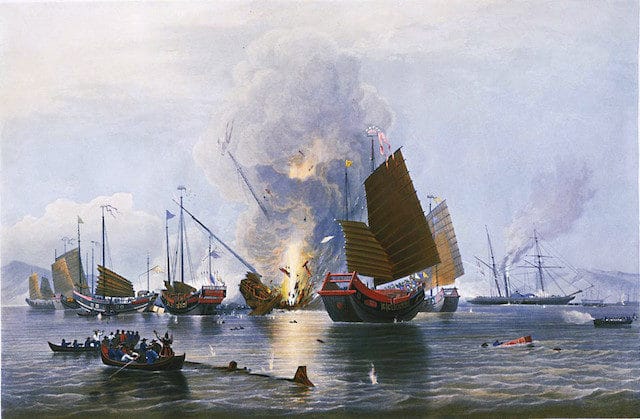
The two opium wars, which were fought over several trade disputes between China, Britain, and France, stand as examples of the dangers of imperialism. Britain’s Indian colonies produced opium, which the East India Company marketed in China. When the Qing Dynasty saw the damage opium consumption wreaked upon its people it moved to curtail the trade. The First Opium War (1839-1842), resulted in a crushing military defeat for the Qing, and the forced continuance of the Opium Trade by the British in China. It also led to the British seizure of Hong Kong, and a virtual monopoly on the legal opium trade (American, Dutch, and French traders also smuggled opium into China).
The First Opium War resulted in limited markets, in terms of areas where opium could be sold. The Second Opium War (1856-1860) came about, in part, in order to expand the areas of trade, taking advantage of the increasingly lucrative markets. France, desirous of their own trading ports in China and Indochina, joined Great Britain in this war. The Russian Empire, though not acting in conjunction with the Anglo-French, sized Chinese territories along their border, entering into the opium trade as well.
Though the Opium Wars received support among the traders involved, the general population in Great Britain strongly condemned them. Most of the fighting involved the British East India Company’s private troops. Both wars could easily have been avoided by recognizing Chinese sovereignty, but the power of the East India Company overcame the strong objections of the British people and even most of Parliament. A then member of Parliament and future Prime Minister, William Gladstone, called the Second Opium War, “a war most unjust in its origin, a war more calculated in its progress to cover this country with permanent disgrace.”
7. The Mexican-American War
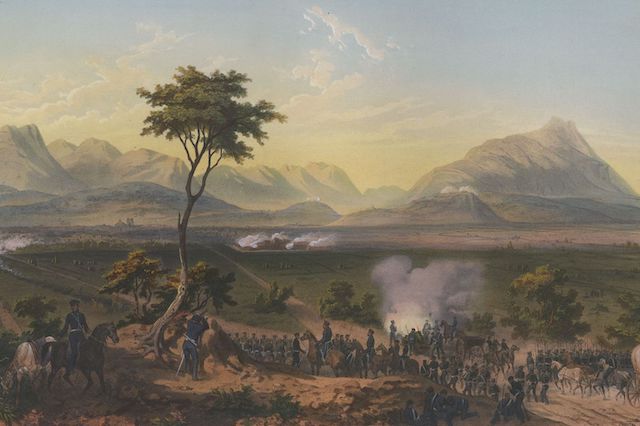
The Mexican-American War devolved from the sectionalism in American politics, the “manifest destiny” of American expansion, and the desire by some to increase the number of slave-holding states. It was the first American war driven by Presidential policies. Opposition to it was fierce. Henry David Thoreau went to prison rather than pay taxes which supported the war. From there he wrote his famous treatise, Civil Disobedience. Congressman Abraham Lincoln opposed the war, and challenged President James K. Polk to cite specific evidence of his claim that Mexican troops attacked Americans on American soil. Polk ignored him.
American expansionists used the disputed border between Texas and Mexico as the cause of the war. Mexico considered the border to be the Nueces River, well to the north of the Rio Grande, which Texas claimed as the border during the days of the Republic of Texas. Rather than negotiate a peaceful solution, Polk placed American troops in the disputed territory. Whether they were attacked by Mexican troops or were themselves the aggressors remains disputed. At any rate, it led to a war which did far more than resolve a border dispute. The United States seized territory which contained today’s New Mexico, Arizona, California, Nevada, Colorado, and parts of Wyoming and Oklahoma.
Ulysses Grant, who fought with distinction during the war, later wrote in his Memoirs, “I was bitterly opposed to the measure, and to this day regard the war, which resulted, as one of the most unjust ever waged by a stronger against a weaker nation.” Simple diplomacy could have prevented the war, but jingoism prevailed over a negotiated peace between sovereign nations.
6. The French Intervention in Mexico in the 1860s
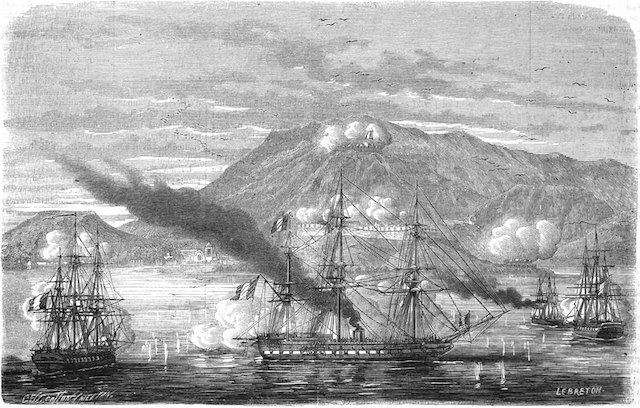
From 1823, the United States followed the tenets of the Monroe Doctrine, and most foreign nations respected the American position. The Monroe Doctrine effectively restricted foreign interventions in the affairs of the Americas, North and South. The United States would respect existing European colonies in the New World, though it would resist the establishment of any more, by any foreign nation. For forty years the European powers respected the Doctrine, until the United States embroiled itself in its own Civil War in 1861.
That same year Napoleon III of France decided to dispatch French troops to Mexico, establish a puppet government under Maximilian, and expand his Empire to the New World. With the United States divided, and the Union Army not performing well against the Confederates, President Lincoln could do little to oppose the French. Fortunately for American history, Mexican rebels objected to the idea of serving under an Austrian Emperor supported by the French government. Civil war in Mexico saw revolutionaries under Juarez oppose the French Army. One of the revolutionaries’ great victories took place at the Battle of Puebla on May 5, 1862. Today the date is celebrated as Cinco de Mayo.
The French intervention in Mexico ended with a complete defeat of the French armies and the execution of Maximilian. Had the Americans not been involved in the Civil War it likely never would have happened. Napoleon could not risk war with the Americans and Mexicans on the other side of the Atlantic, especially considering the British may have intervened as well. About 14,000 French and over 80,000 Mexicans and American mercenaries were killed in the war of opportunity launched by the French despot. It ended in 1867, with American troops and ships poised to intervene, enforcing the demands of the Monroe Doctrine.
5. The Second World War

American President Woodrow Wilson described World War I as the “War to end all wars.” The American boys who marched off to war in 1917 may well have believed that. The treaty which formally ended the war though, all but ensured another war for supremacy in Europe was inevitable. The punitive nature of the Treaty of Versailles issued harsh reparations on the former German Empire. France claimed German territory, new nations were created from German regions of Europe, and the remaining German nation underwent forced disarmament. Some among the victorious allies considered the terms forced upon the Germans as too lenient.
The success of the proposed League of Nations received a blow when the United States Senate, in a return to isolationism, refused to ratify the treaty. French Marshal Ferdinand Foch described the treaty as a twenty-year armistice, a clear indication he believed it insufficient to prevent another war. The harsh terms imposed upon Germany led to decades of turmoil and the eventual rise of the Nazi Party. In the Pacific, the German colonies and territories on the Chinese mainland were given to Japan, causing resentment, hostility, and eventually the Sino-Japanese War.
Japanese expansionism in the Pacific, joined with the rearmament of Germany (which began under Weimar, not as widely believed under Hitler) did not necessarily mean a Second World War was inevitable. But it made it more likely, and the Western powers of France, Great Britain, and the United States knew it during the 1920s. Rather than taking steps to prevent another war, they chose to appease Japan and Germany while they rearmed. Throughout the 1920s and 1930s the US Navy conducted annual war games against the simulated armed forces of Japan, clear proof they regarded the rising Asian Empire as a threat in the Pacific. The French built the Maginot Line. Great Britain expanded its fleet and developed its air force. World War II may have been avoidable, though none of the Great Powers believed it at the time.
4. The Iraq War
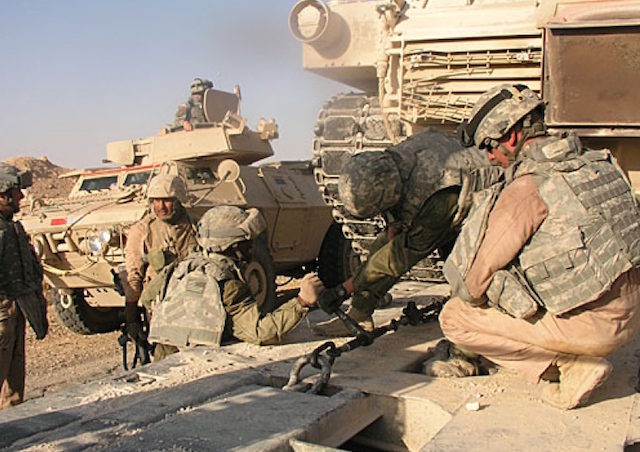
Following the 9/11 attacks in the United States, pressures to link Iraq to Al Qaeda within the US government persisted. In November, 2002, the 9/11 Commission began its investigation into the attacks and Al Qaeda’s relationship with foreign governments. In August, 2004, its final report claimed there had been no relationship with Saddam Hussein’s government, and there existed no evidence of Iraq’s harboring and funding the terrorist group. By that time the United States was already at war with Iraq, with one of its justifications being Saddam Hussein’s relationship with Al Qaeda.
The other major justification of the US led “coalition of the willing” in attacking Iraq was the claimed existence of weapons of mass destruction (WMDs), including chemical and biological weapons. It was also claimed that Iraq was deep into the development of nuclear weapons. During the invasion in 2003, and throughout the US occupation which ensued, no traces of weapons of mass destruction were found in Iraq. Fighting continued for years. The American troops were officially withdrawn in 2011.
Insurgencies and increased fighting forced American security forces to return in 2014. The Iraq War, found neither WMDs nor evidence of Iraqi support of Al Qaeda. It led to more than one million total deaths, depending upon the estimate selected, and its total cost to the United States will likely exceed $6 trillion, not including interest on debt. Other than the capture and subsequent execution of Saddam Hussein, what it accomplished remains a subject of considerable debate.
3. The Six-Day War
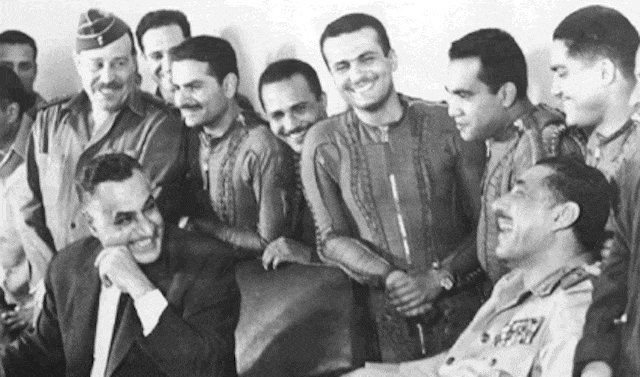
Beginning during the first week of June, 1967, the clash known as the Six Day War between Israel and the Arab nations of Syria, Jordan, and Egypt occurred because diplomacy failed. It provided the climax of weeks of increasing tension in the Middle East, yet still remained a surprise, at least to the Arab nations involved. It began with preemptive airstrikes launched by the Israelis against the Egyptian Air Force, which was mostly destroyed on the ground. Syria and Jordan, allied militarily to the Egyptians, responded to Israel’s subsequent ground invasion of the Sinai, though Arab military action proved ineffective.
When the ceasefire agreement was signed on June 11, Israel had occupied the Golan Heights, the West Bank, the Sinai Peninsula, and the Gaza Strip. The Israelis killed over 20,000 Arab troops against the loss of about 1,000 of their own. The speed and extent of their victory over the three Arab nations stunned the world. All the areas captured during the war remain major points of dispute more than fifty years later. It has been said the world is still living the seventh day of the Six Day War.
The immediate cause of the conflict had been the Egyptian announcement of the closure of the Straits of Tiran to Israeli shipping. The Egyptians closed the straits based in part on false information received from the Soviet Union of Israeli intentions. Revelation the information was false and quick action by the United Nations and other countries could have removed the stated cause of the war, though whether it could have been completely avoided is questionable, given the long-standing hostility between the parties involved. It led to subsequent conflicts, including the 1973 Yom Kippur War, and continued terrorism and counterterrorism throughout the region.
2. World War I
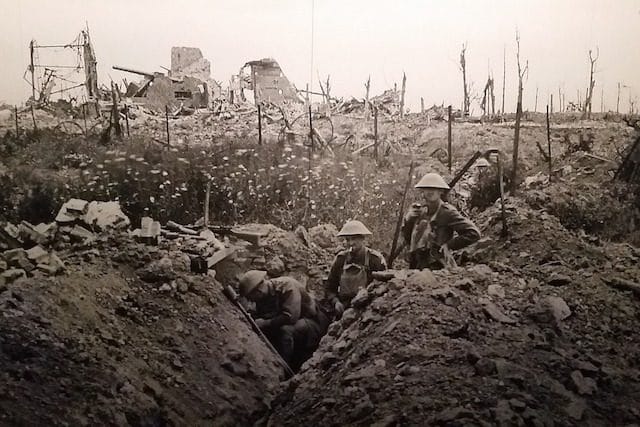
In 1914, the Tsar of Russia, the King of Great Britain, and the German Kaiser were all cousins, sharing Queen Victoria as their grandmother. Personal relationships did not counter the desire for global empires among the great nations of Europe. Even tiny Belgium held imperial ambitions in Africa, while the Netherlands held colonies in the Pacific, the Caribbean, and Africa. The need for protection triggered the spate of alliances and counter-alliances among the European powers, which eventually affected even remote Japan.
Those alliances were triggered by the assassination of Austria Archduke Ferdinand in 1914, and the European powers began mobilizing massive armies as demanded by their various treaty obligations. Yet that did not make war inevitable. Last moment diplomatic maneuvers in the European capitals involving the French, British, Russian, and German representatives struggled to avert the looming disaster, which promised to be the biggest conflict on the continent since the days of Napoleon. At the end of July, Germany received assurances that Great Britain would not come to the aid of the French should the latter attack the Germans.
France though, allied with Russia, responded to German attacks to the East, and what had been a wholly preventable war exploded across the continent. Until 1914 the European press referred to the Napoleonic Wars as the Great War. They soon applied that appellation to the conflict which raged for four years, accomplished relatively little, and led to the overthrow of two cousins, Kaiser Wilhelm and Tsar Nicholas II. The first went into exile. The second lost his life, executed with his family by Bolshevik revolutionaries.
1. The American Revolutionary War
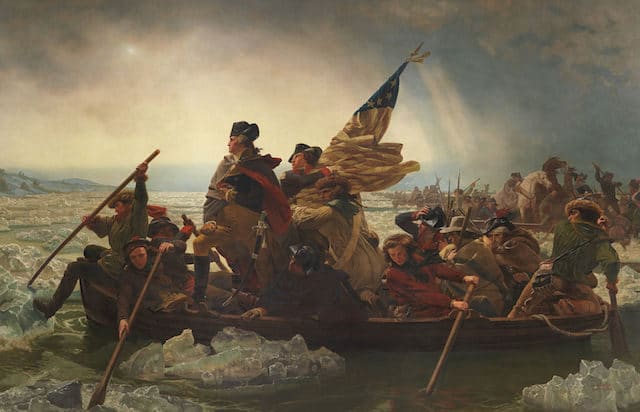
Only about a third of American colonists supported the rebellious attitude of the Sons of Liberty and others opposing the policies of Parliament regarding colonial administration. About the same proportion of the population opposed them, and actively supported the King and his ministers. The rest didn’t care much one way or the other, content to go about their business without regard to politics. So, independence and armed rebellion were hard sells to some of the representatives in the Continental Congress when news of fighting in Massachusetts reached Philadelphia in 1775.
They pushed a measure through Congress which became known as the Olive Branch Petition. Led by Pennsylvania’s John Dickinson, petitioners hoped that reconciliation between the colonists and the King would prevent military conflict. Though they held the majority in Congress, the petitioners did not prevent the authorization of an American invasion of Canada, passed only one day before the Olive Branch position. Nonetheless, the latter document assured King George of the colonist’s loyalty and fealty to the crown.
When it reached London, the King’s ministers rejected it out of hand. The King himself refused to read the document, and in August declared the colonists to be traitors. He did condescend to allow the commanders of the Army and fleet sent to America, the brothers Admiral Richard and General William Howe, to negotiate with the Americans to end the rebellion without further bloodshed. That endeavor came to nothing when John Adams and Benjamin Franklin met with the Howe’s in 1775. The Revolutionary War dragged on for eight years, the longest in American history until the Vietnam War nearly two centuries later.